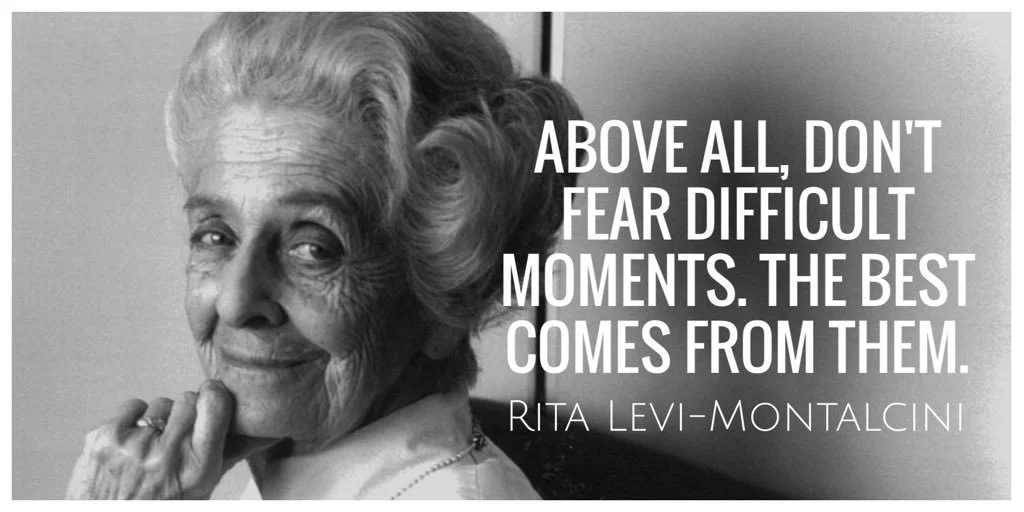Rita Levi-Montalcini | The Eros of Devotion
The Eros of Devotion
A reflection for every woman who is done performing and ready to live from within.
We often speak of Eros as desire.
But what if Eros is also discipline?
What if it’s not about being attractive, but being attuned to your own energy, your truth and sense of purpose?
To explore that, I look to a woman who rarely comes up in conversations about feminine embodiment.
But she should.
Her name is Rita Levi-Montalcini.
Rita was born in 1909 in Italy, into a conservative Jewish family. Her father believed education would make his daughters less suitable for marriage. Still, Rita wanted to study medicine. She waited until her twenties, then enrolled, going against family expectations and cultural norms.
When fascism took over Italy and anti-Semitic laws banned Jewish people from working, she was expelled from her post at the university. She was no longer allowed to teach. No longer allowed to publish. No longer allowed to exist in her role as a scientist.
But she didn’t stop.
She set up a lab in her bedroom. A small wooden table, a microscope, some tools. That was it. While bombs fell outside during World War II, she studied the growth of nerve cells under candlelight.
She didn’t do it for recognition.
She didn’t do it to be seen.
She did it because she couldn’t not do it.
That’s devotion.
That’s Eros.
So why are we speaking about Rita when we speak about Eros?
Because we need to expand our definition of feminine power.
Eros is not always sensual.
Sometimes it's focused.
Sometimes it’s quiet.
Sometimes it’s a woman alone in a room, working on what no one else understands, because something in her says: stay with this.
Rita eventually won the Nobel Prize for her discoveries in neurology. But long before the world applauded her, she had already claimed herself.
That’s the point.
We’ve been told that to be magnetic, we have to perform.
To soften our edges.
To smile more.
To adapt.
To appeal.
But women like Rita remind us that magnetism doesn’t come from being pleasing.
It comes from being clear.
Eros is your clarity.
It’s your refusal to abandon what matters to you.
It’s the heat in your body that tells you: this is not aligned.
It’s the knowing in your chest that says: this is mine.
You don’t need to be desirable to be powerful, or perform to be loved.
You don’t need to be seen to be real.
You need to be honest.
You need to stay with yourself.
And that’s what we’re reclaiming when we talk about Eros now. Not as something that attracts others, but as something that anchors us in who we are.
So today, ask yourself:
Where am I still performing?
What would it feel like to stop explaining and start expressing?
Where is my clarity trying to lead me, even if no one else understands?
You don’t need a spotlight to be valid or applause to stay committed.
You just need to trust the pulse within you.
That’s Eros.
That’s devotion.
That’s freedom.


